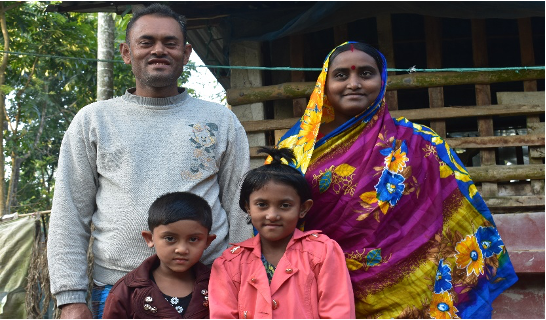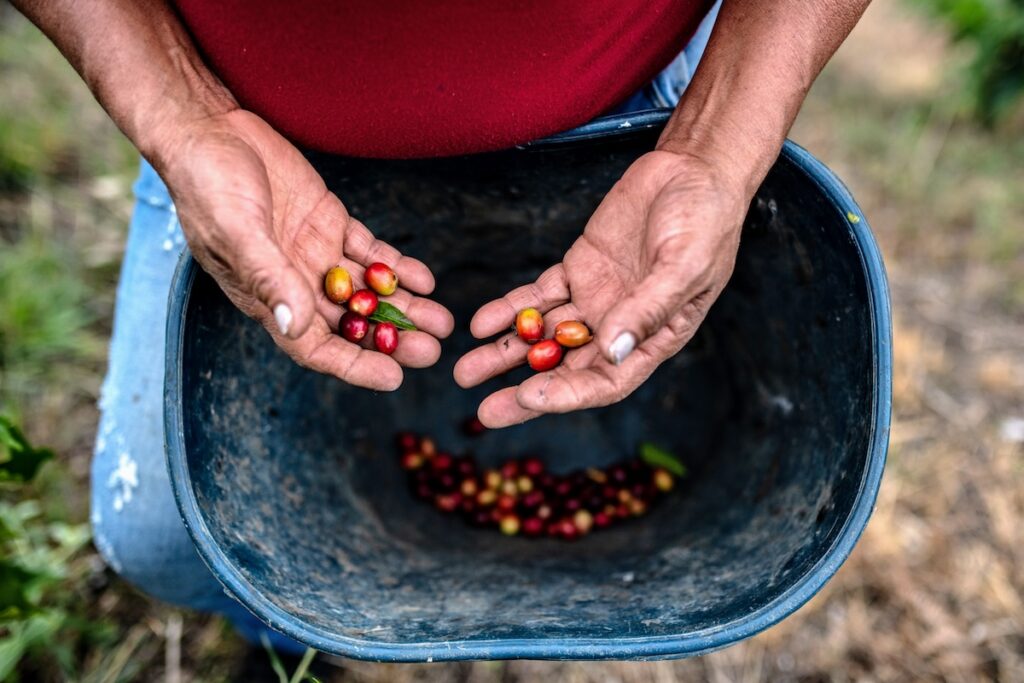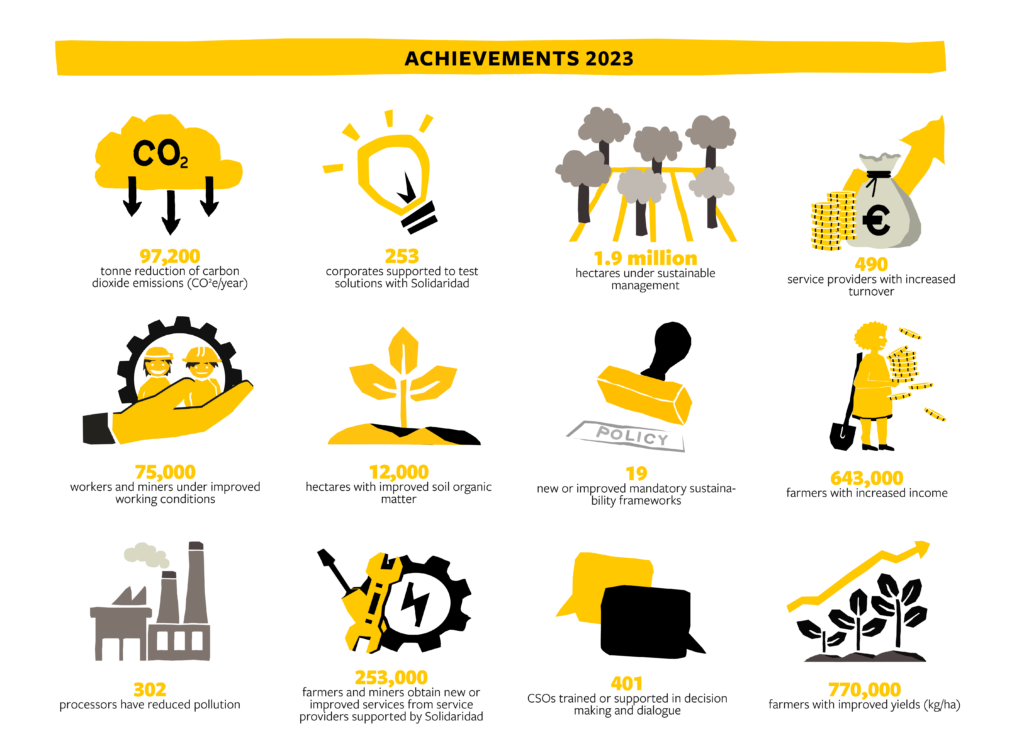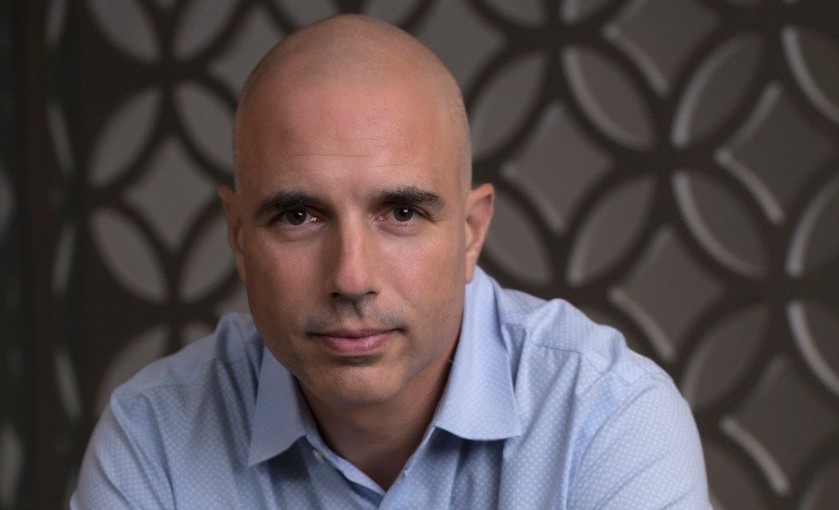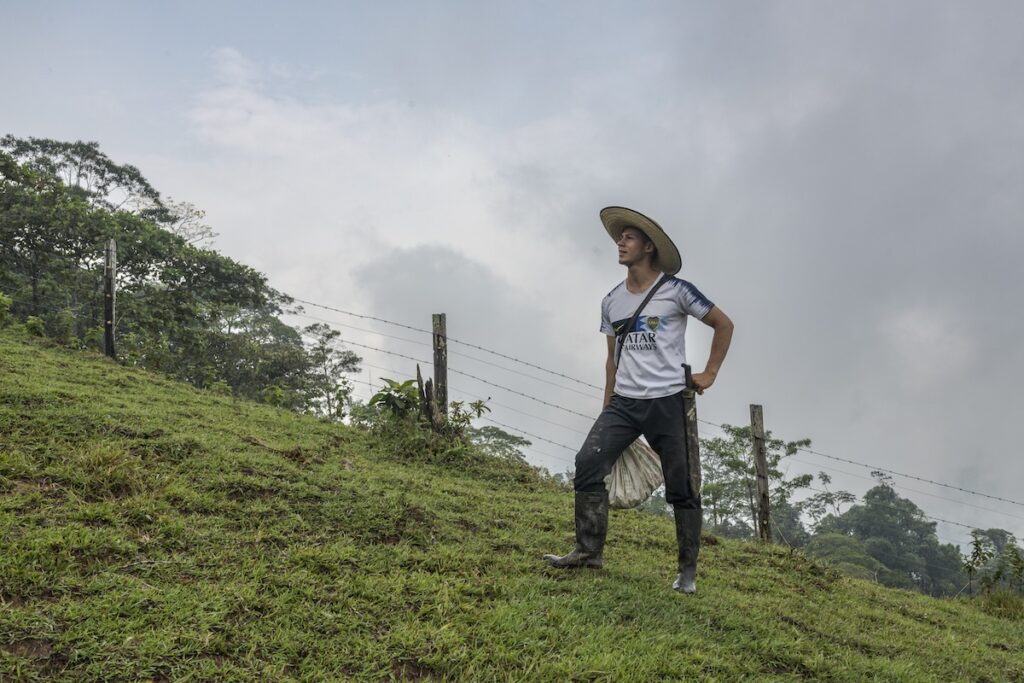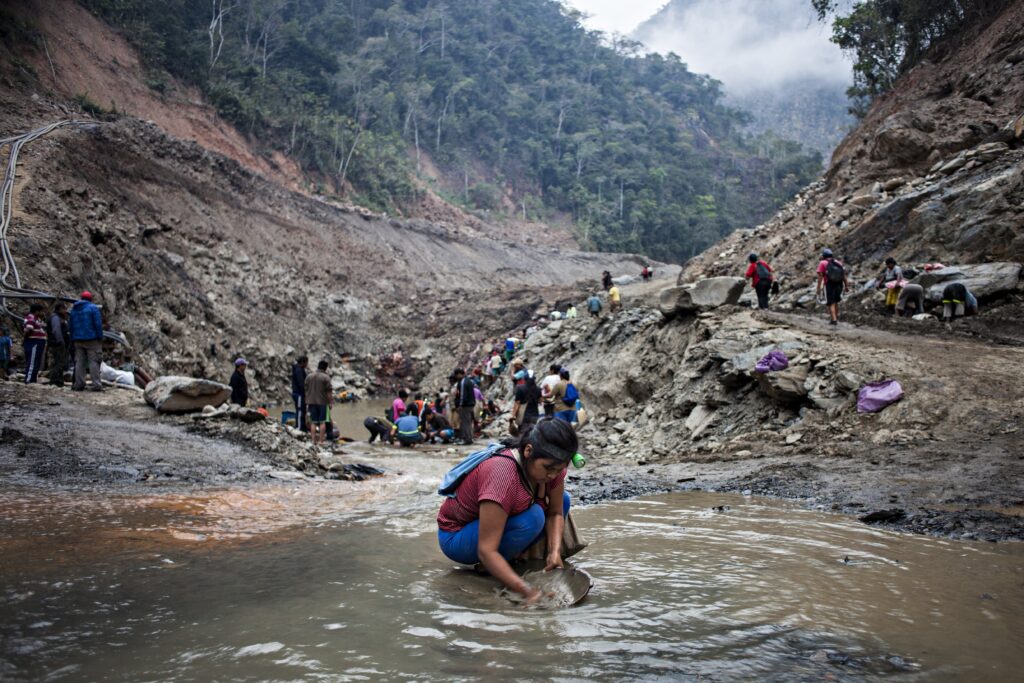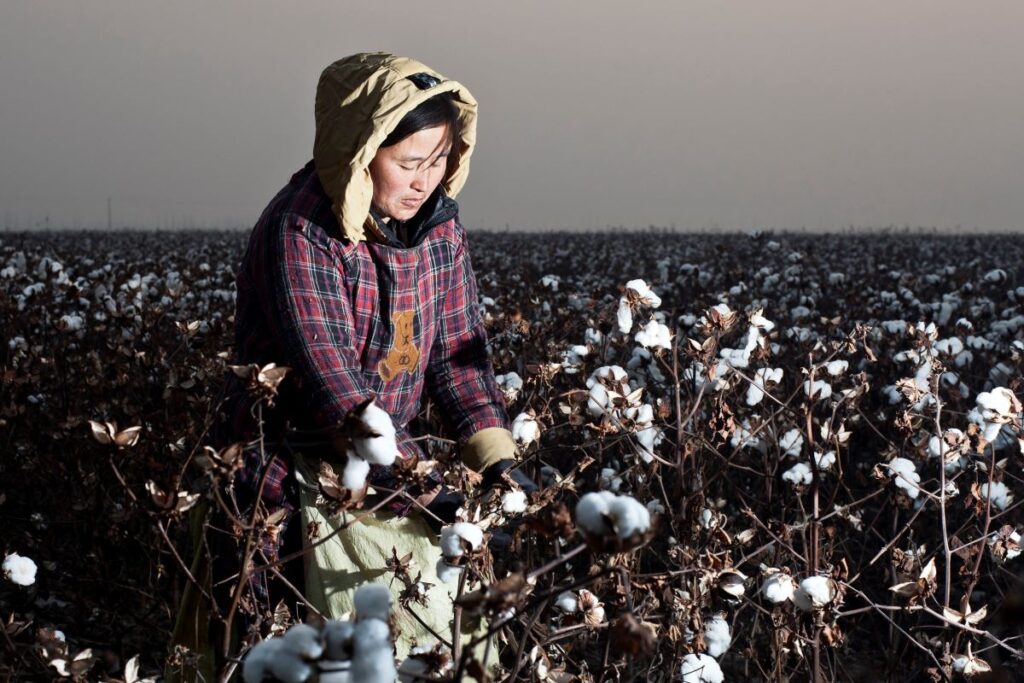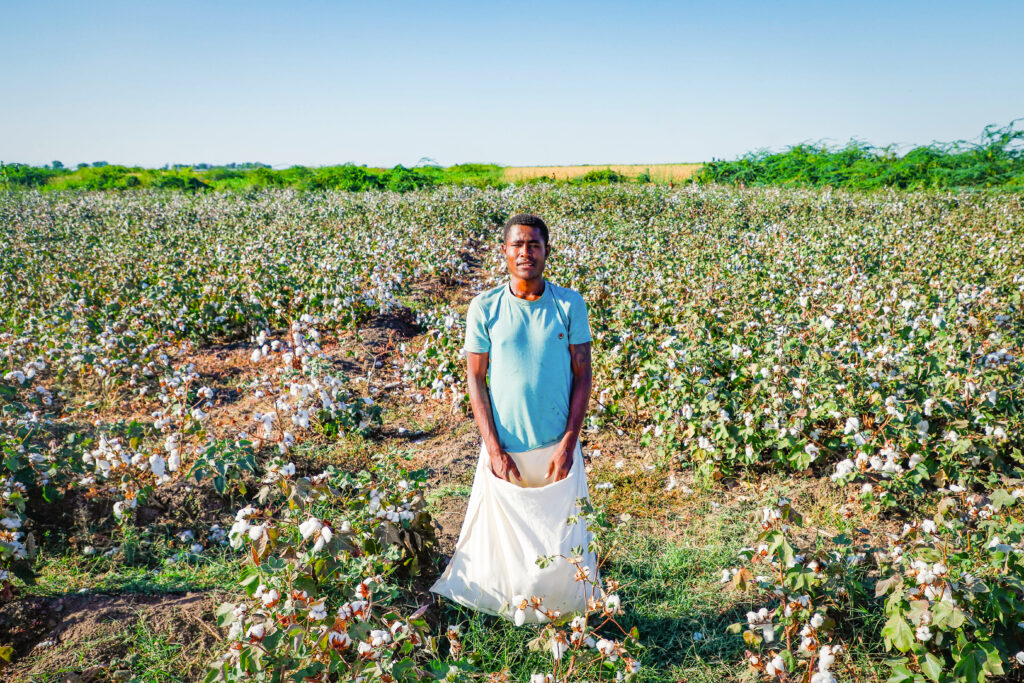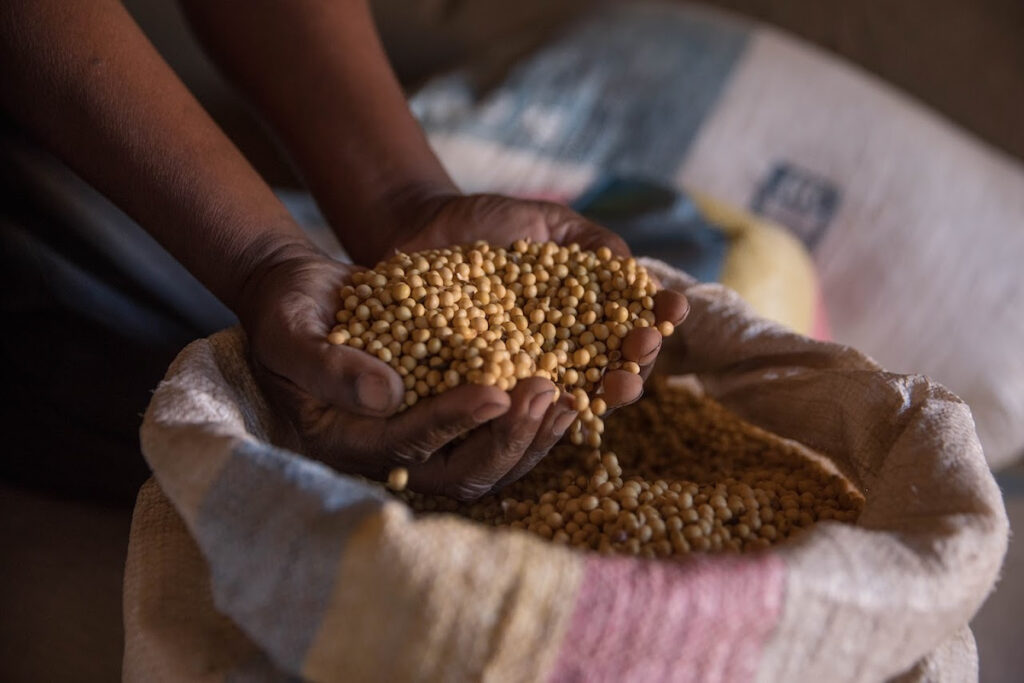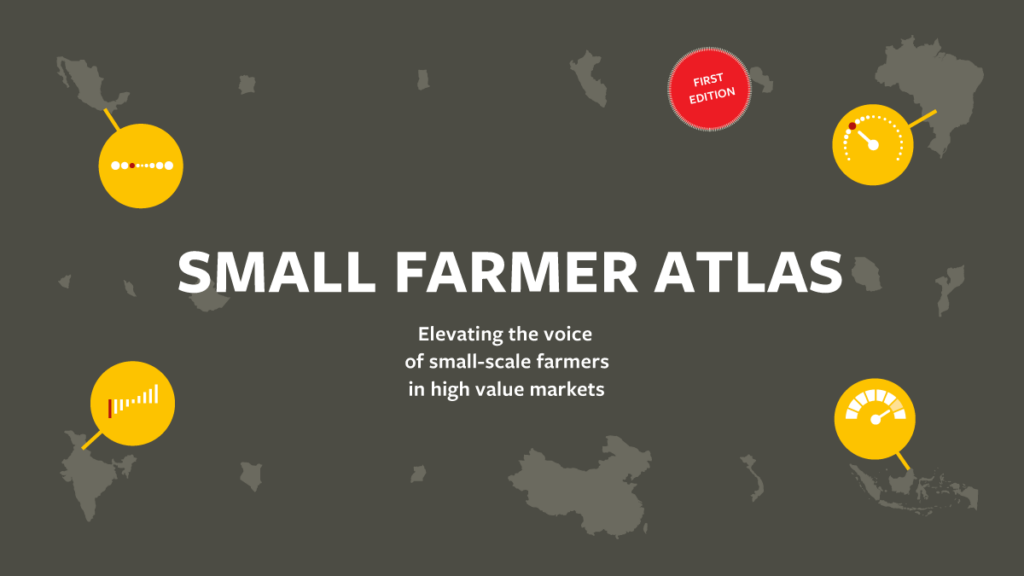Pictured above: Aparna Rani with her husband Dilip Kumar and her children
Aparna hails from the village of Pachputa in Keshobpur Upazila, Jashore district in Bangladesh. Although financial limitations meant that Aparna wasn’t able to continue her education for as long as she planned, her family was able to provide an important resource as she ventured into adulthood: a heifer. This inspired Aparna to apply for a loan from the Bangladesh Rural Development Board to buy her first milk cow, which she used primarily to provide milk to her two daughters, selling any extra to local milk buyers. Over the years, Aparna used her self-taught business acumen to grow her dairy operation, while also supporting her husband to start a motorcycle transportation business. However, she was constantly struggling to improve the productivity of her cows. She also never received fair prices for the milk she sold in the local market.
Layering opportunities for exponential impact
When the opportunity arose in 2015 to join Solidaridad’s Sustainable Agriculture, Food Security and Linkages project (SaFaL), it was a perfect fit. The intensive training in good dairy farming practices helped to improve her dairy operation and yields. Importantly, she was able to sell milk at one of the 15 milk collection centers that had been established by Solidaridad and get a fair price based on the quantity and quality of the milk she sold. Soon, she was able to pay down her debts, while her passion for learning and growing her business only intensified. Hence, joining Solidaridad’s USAID-funded ‘Digital Inclusion and Empowerment for Women Dairy Farmers in Bangladesh’ marked a major turning point for Aparna’s business.
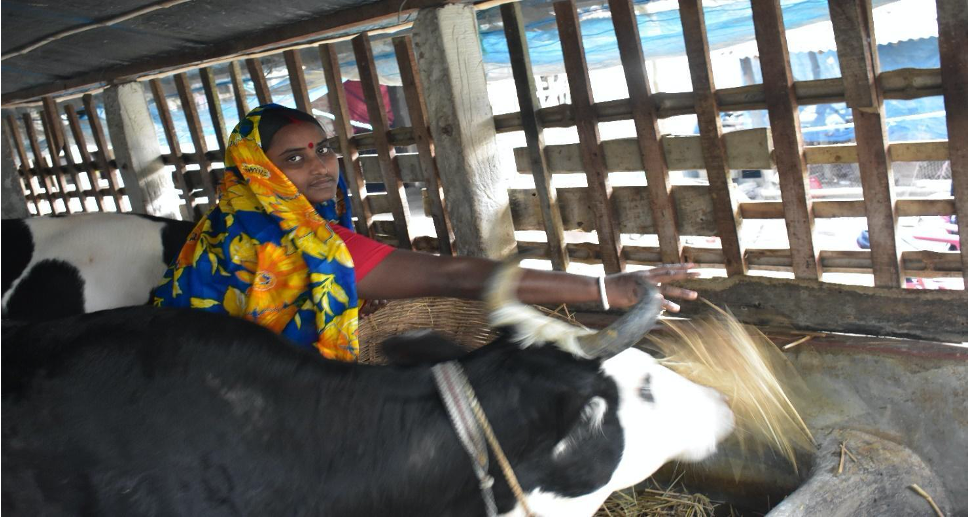
About the ‘Digital Inclusion and Empowerment for Women Dairy Farmers’ Project
Since February 2020, this USAID-funded WomenConnect Challenge project has been supporting women dairy farmers in Bangladesh to adopt digital solutions that improve financial inclusion and strengthen their dairy farming capacities. The project is being implemented in Khulna and Jashore districts, which are both located in Southwest Bangladesh. The technologies were created used a human-centered design approach to ensure that it provided services and information that is truly relevant to this audience:
With Interactive Voice Response (IVR) technology, women farmers are able to use their basic mobile phones to access the information they need to better manage their dairy farms and improve milk production. To date, nearly 12,000 farmers are using the IVR system, which is helping them improve their livelihoods.
The i2i app is a mobile-application that allows women farmers to register their profiles, their cattle profiles, and receive daily text messages about the quantity, quality, and price of milk they sell to the Milk Collection Centers. They also get regular text messages about the money owed to them by the collection center. Further, the payments are sent to the digital wallets of the women farmers, so that they can directly access the money owed to them. Over 5,600 women are benefitting from the i2i app using basic mobile phones, while over 4,200 have been supported to use mobile wallets.
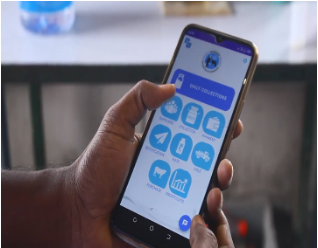
Aparna is delighted to use the mobile payment system established by the project. Apart from being able to easily track her transactions at the MCC, she is using her mobile wallet to pay household bills and her children’s school fees, and transfer money to relatives during emergencies. She enjoys using the IVR system, which helps her learn about improved dairy farming practices during her leisure time at home.
Importantly, Aparna and her husband are also benefiting from the community-based sessions conducted for the women dairy farmers and their family members. The sessions sensitize them about the importance of financial inclusion of women and train them in financial management skills. Aparna’s husband Dilip Kumar cheerfully acknowledges, “Nowadays, my wife is more capable than me in taking decisions regarding our dairy farm. On the days I provide feed to our cow, the milk fat content goes down and we get at least 5-6 less taka per liter compared to the days my wife takes care of feeding the cow. We then always get 8-10 taka more per liter! This proves that my wife can make decisions by herself regarding dairy farm management.”
How personal empowerment creates stronger communities
Today, Aparna has seven cattle, and has used profits from her business to purchase land, a biogas plant, and a deep well, all while comfortably maintaining her family’s expenses. Aparna says her dream is to help her daughters become good citizens, and she is already blazing the trail for them, having recently been elected as a member of the governing body for the local school. Other women in the community are also getting inspired and motivated by Aparna’s success to empower themselves.
Read more about the ‘Digital Inclusion and Empowerment for Women Diary Farmers in Bangladesh’ project
- How Women Dairy Farmers Are Taking Charge With Digital Solutions (September 2021)
- How Technology Is Transforming Dairy Farming For Women In Bangladesh (June 2021)
- The Digital Gateway To Empower Women Dairy Farmers (April 2021)
- Accelerating Pace in Solidaridad’s WomenConnect Challenge Project (November 2020)
- Solidaridad’s USAID-Funded WomenConnect Challenge Project Gains Momentum (September 2020)

